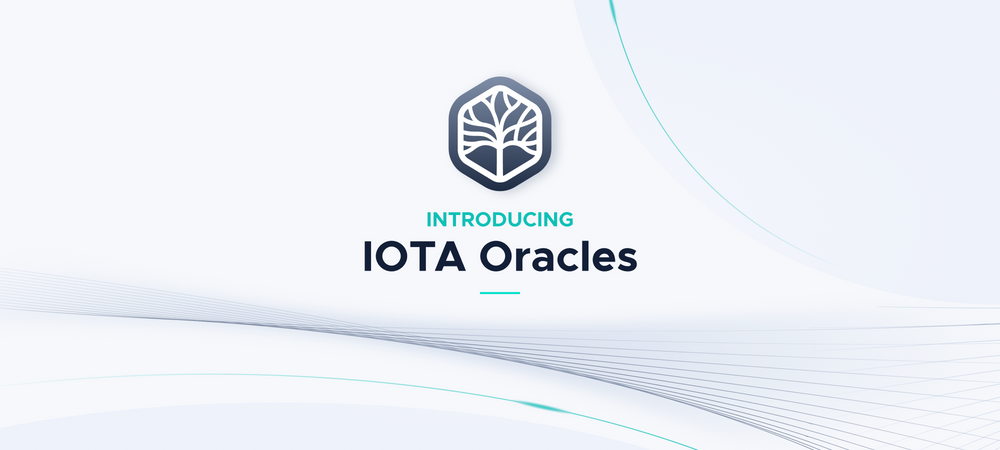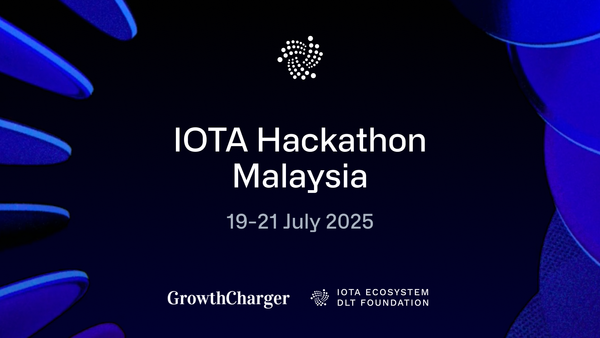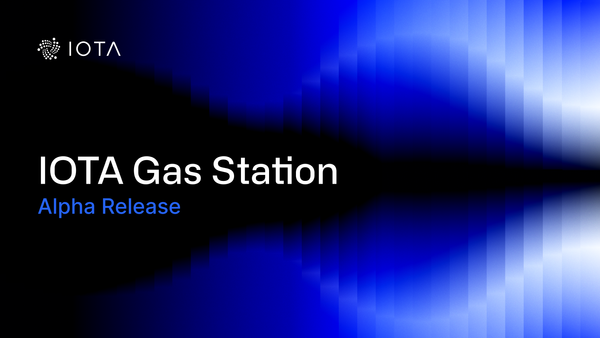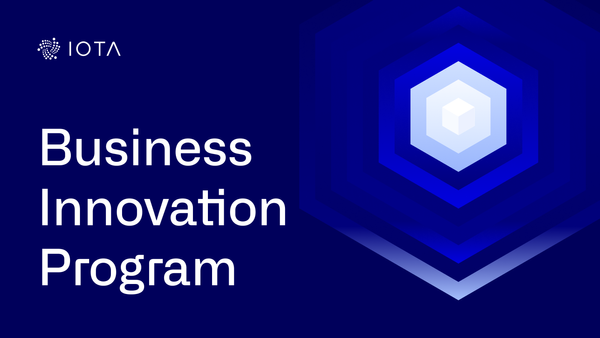Introducing IOTA Oracles
Oracles are an exciting frontier in the world of distributed ledger technology. They are designed to securely bridge between the digital and the physical world in a decentralized, permissionless way. As IOTA expands, it’s important that the proper tooling is available to support organizations and engineers looking to bring the machine economy to life.
In this blog post, we discuss what oracles are, how they are used, the first steps we are taking towards a comprehensive Oracles solution, and why they are important for the future of the IOTA ecosystem.
The Oracle problem
Oracles provide blockchains with outside information, typically for use in smart contracts, or provide interoperability between different distributed ledgers.
While oracles are mostly meant to be a bridge between the external/off-chain world and decentralized networks and services, they suffer from the age-old “garbage in, garbage out” problem. If the data going into an oracle can be manipulated or censored, it is possible that “wrong” data would lead to “wrong” results. Some oracle solutions try to solve this by ensuring that oracles are using input from a sufficiently large number of independent sources. Other oracles on the market have proposed a set of standards to bring off-chain data on-chain, but even they suffer from inherent bottlenecks that can inhibit real-world adoption.
It is with this in mind that today we unveil IOTA Oracles!
What are IOTA Oracles?
IOTA Oracles bring off-chain data to decentralized applications and smart contracts on the IOTA network. The IOTA Tangle offers a few key advantages compared to a conventional blockchain oracle solution:
- IOTA transactions are feeless
- IOTA transactions can hold a fairly large amount of data
- IOTA’s network operates in near real-time
- Fetching data using an IOTA node is lightweight and efficient
- IOTA Oracles supports diverse security and data structuring capabilities
How do IOTA Oracles work?
From the IOTA viewpoint, optimally trusted data needs to come directly from the point where the data is generated while being processed and secured in a decentralized manner. The potential of data manipulation is greatly reduced if the source (e.g. a sensor) submits data directly to a tamper-proof distributed ledger without going through several intermediaries.
Here we introduce the first, and most simple IOTA Oracle, the First Party Oracle. IOTA First Party Oracles do not use external data sources, nor data that was processed and made available on a DLT by a third party, but instead rely on data that has been submitted to the IOTA Tangle by the data issuer itself. In the context of IoT networks, “data issuers” would refer to the sensors themselves, without being manipulated or reformatted by anyone or anything.
Once IOTA Smart Contracts are live, First Party Oracles can be used to feed smart contracts with data directly, without having to worry about an intermediary to retrieve, process, host, or maintain data. Unlike some other solutions on the market, the IOTA Foundation never interacts with data supplied by data providers.
Enough talk: show me the proof!
In the following demo (desktop only), we show an IOTA First Party Oracle taking a digital asset price feed from Kaiko and streaming it onto the IOTA Tangle. Once submitted, applications could leverage Kaiko’s enterprise-grade crypto-asset market data and incorporate it into any decentralized application such as an Automated Market Maker (AMM), lending platform, or synthetic asset exchange on the IOTA Tangle.
Moving forward
IOTA Oracles will offer a complete solution for organizations to send data directly to the Tangle. We encourage data providers to try out IOTA Oracles and see how easy they are to use. We also encourage IOTA community members to build applications that leverage off-chain data feeds to explore the full potential of oracles on our network.
In the coming weeks, we will share more information regarding how IOTA Oracles fit into our ecosystem tooling and product strategy, as well as a plan to develop a family of oracles for crypto-asset-specific and real-world use cases, such as industrial oracles and consensus oracles. Consensus oracles can aggregate data from multiple data providers to provide a more reliable source of information, in case any provider is compromised.#
If you are interested in IOTA Oracles and want to join the conversation, feel free to visit us on our Discord.
About Kaiko
Founded in 2014, Kaiko is the leading market data provider in the blockchain-based digital assets industry, providing institutional investors with enterprise-grade market data infrastructure. Headquartered in Paris, Kaiko also has offices in NYC and Tokyo. For the past six years, Kaiko has been collecting, normalizing, storing, and distributing crypto assets data to market participants via a suite of APIs and data products. Kaiko currently provides the largest public database of instrument reference data in the industry, collected from over 85 cryptocurrency exchanges, comprising more than 3,800 individual tokens and 75,000+ instruments.




